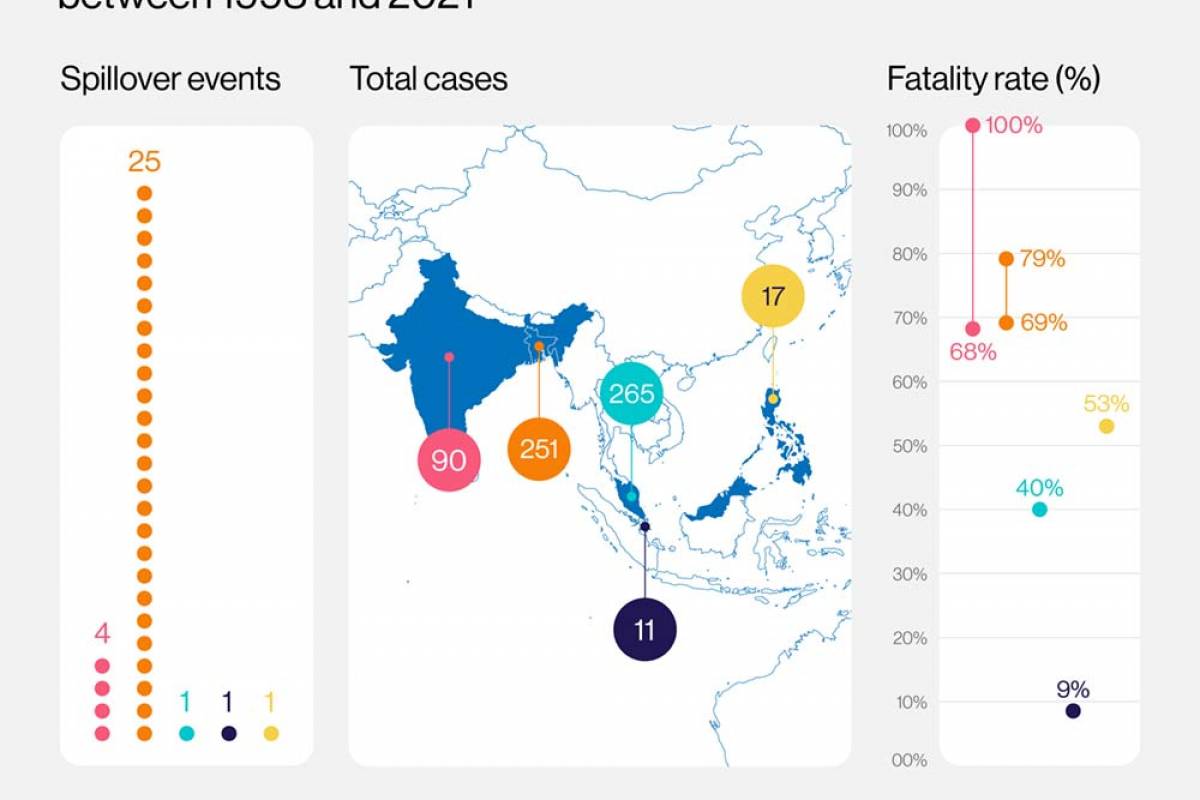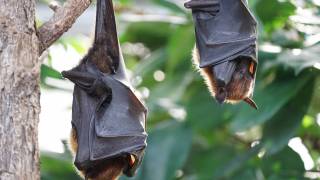Nipah Virus mRNA Nanoparticle Vaccine Candidate Posts Positive Study Results

Nipah virus infection is an emerging serious zoonotic disease without a preventive vaccine. This virus is transmitted to humans through infected animals (fruit bats) or food contaminated with excretion and secretions from bats.
Vaccine research is essential since the case fatality rate is estimated at 40% to 75%.
Phylex Biosciences announced today its new mRNA nanoparticle vaccine against the Nipah virus achieved positive results in an immunogenicity study conducted in collaboration with scientists from the U.S. Centers for Disease Control and Prevention (CDC).
The vaccine elicited a robust neutralizing antibody response, with neutralizing titers markedly higher than with several other Nipah vaccine designs and efficient neutralizing even with a single dose. In virus neutralization assays, neutralization titers of Phylex vaccine-elicited sera against Nipah virus were 3-fold the average titers of 14 individuals in Bangladesh who survived a Nipah virus infection.
The Phylex mRNA vaccine encodes for a nanoparticle displaying 60 copies of the antigen-based upon the head domain of the G protein of the Nipah virus.
On August 5, 2024, the company published a preprint of a research article on the immunogenicity of its Nipah mRNA nanoparticle vaccine.
"We are grateful to our co-authors at the CDC for their contribution in assessing our vaccine against this difficult pathogen," said Pascal Brandys, co-founder and CEO of Phylex Biosciences, in a press release.
"The results confirm the strong advantage of our mRNA vaccine encoding for a highly immunogenic nanoparticle, as compared with a variety of other technologies."
"Our vaccine combines the advantages of mRNA for speed of manufacturing and development and a nanoparticle for efficacy after one dose," Brandys continued. "We will aggressively pursue the clinical development of our vaccine candidate to initiate clinical trials with exposed individuals on a compassionate basis and save lives as soon as possible."
The Nipah virus is a pathogen that causes encephalitis and acute respiratory distress in humans. Recent outbreaks have occurred in Bangladesh, India, Malaysia, the Philippines, and Singapore, and the fatality rate is over 50%.
The virus's natural hosts are large fruit bats, which are present across South Asia, including India and Bangladesh.
To assist countries, a Technical Brief was developed In February 2024 as an interim document to guide countries in the readiness planning for a Nipah virus event, especially in countries that have not reported a Nipah virus event.
The CDC has not approved a vaccine or therapeutics against the Nipah virus.
Our Trust Standards: Medical Advisory Committee


